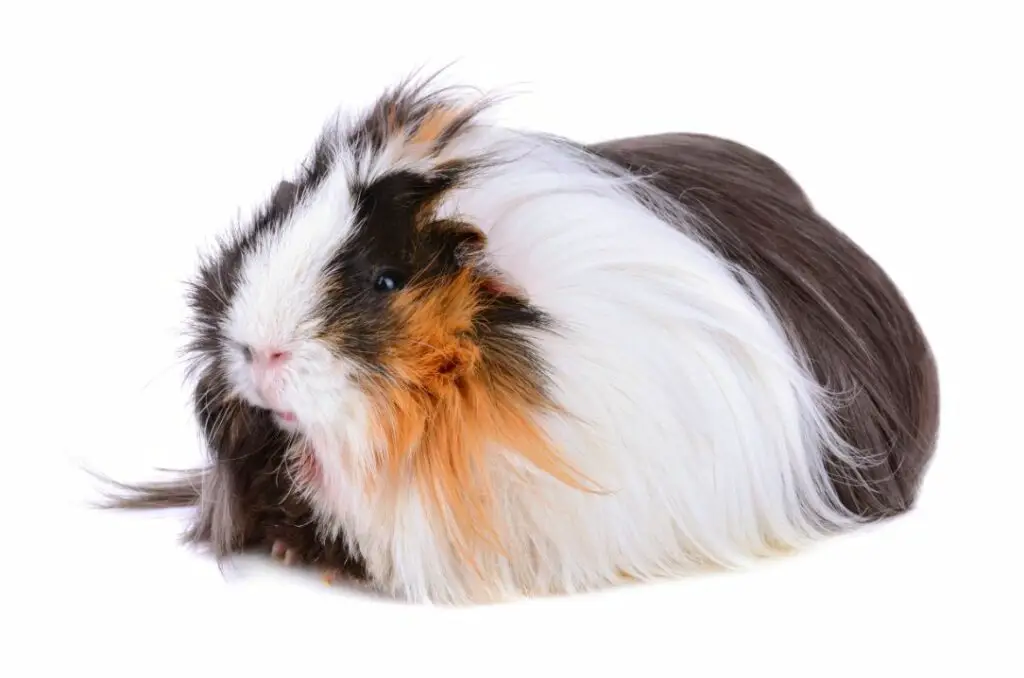Guinea pigs are popular pets around the world. These small, cute, and furry animals are known for their gentle nature and easy-to-take-care-of personality.
However, like any other animal, they have their own set of behaviors and habits that may surprise new pet owners. One of the biggest concerns that new guinea pig owners have is whether or not their furry friend will bite them.
In this blog post, we will discuss everything that you need to know about guinea pig biting, including why they bite, how to prevent it, and what to do if you or your guinea pig gets bitten.

Understanding Guinea Pig Biting
Guinea pigs are generally gentle animals and are not known for being aggressive. However, they are prey animals, which means that they can become defensive if they feel threatened or scared. Guinea pigs may also bite if they are in pain or if they are feeling territorial. It is essential to understand why your guinea pig is biting you so that you can address the root cause of the problem.
There are two types of guinea pig bites: warning bites and aggressive bites. Warning bites are usually quick and painless nips that guinea pigs use to warn their owners that they are uncomfortable or unhappy. Aggressive bites, on the other hand, are more severe and cause more damage. Signs of aggression in guinea pigs include teeth chattering, hissing, lunging, and biting.
Preventing Guinea Pig Bites
The best way to prevent guinea pig bites is to understand your pet’s behavior and to handle them properly. Guinea pigs are social animals and enjoy spending time with their owners. However, they also need their space and may become agitated if they are handled too much. Here are some tips on how to prevent guinea pig bites:
- Proper guinea pig handling and interaction: When handling your guinea pig, make sure that you support their body and never pick them up by their legs or tail. Avoid squeezing or pinching them, and be gentle when petting them.
- Creating a safe environment for your guinea pig: Guinea pigs need a safe and comfortable living space. Make sure that their cage is large enough for them to move around, and that it is free from hazards such as sharp edges or loose wires.
- Building trust with your guinea pig: Guinea pigs are intelligent animals and can learn to trust their owners. Spend time with your pet, offer them treats, and interact with them in a positive way.
Treating Guinea Pig Bites
If you or your guinea pig gets bitten, it is essential to take the right steps to prevent infection and further damage. The bites usually don’t hurt, but in some cases, they can do some damage.
Here are some tips on how to treat guinea pig bites:
- First aid for minor bites: If your guinea pig bites you, wash the wound with soap and water, and apply an antiseptic ointment. If the bite is severe, seek medical attention immediately.
- When to seek veterinary care: If your guinea pig bites you and draws blood, or if the bite is deep and painful, you should seek veterinary care. Your guinea pig may have an underlying health issue that causes it to bite so deeply that needs to be addressed.
- Preventing future bites: Once your guinea pig has bitten you, it is essential to address the root cause of the problem. If your pet is in pain or feeling threatened, you may need to adjust their living environment or seek veterinary care.
Common Questions About Guinea Pig Biting
Here are some common questions that new guinea pig owners have about guinea pig biting:
- Are all guinea pigs prone to biting? No, not all guinea pigs are prone to biting. However, some may be more aggressive than others, depending on their personality and living conditions.
- Can guinea pigs bite other animals or humans? Yes, guinea pigs can bite other animals and humans if they feel threatened or scared. It is important to supervise your guinea pig when they are interacting with other pets or people.
- Are there certain situations that make guinea pigs more likely to bite? Yes, guinea pigs may be more likely to bite if they are in pain, feeling threatened, or if they are feeling territorial. It is important to understand your pet’s behavior and to address any underlying issues.
Conclusion
In conclusion, guinea pig biting is a common concern for new pet owners. However, with proper handling, a safe living environment, and building trust with your pet, you can prevent most guinea pig bites.
If you or your guinea pig gets bitten, it is essential to take the right steps to prevent infection and further damage. Understanding your pet’s behavior and addressing any underlying issues is the key to responsible pet ownership. By following these tips, you and your guinea pig can enjoy a happy and healthy relationship.
- How Long Do American Eskimo Dogs Live? Important Factors and Care Tips - September 29, 2023
- Do American Bulldogs Need Grooming? Essential Tips and Care Guidelines - September 29, 2023
- Do Bengal Cats Enjoy Playing? Essential Tips for Keeping Them Active - September 29, 2023